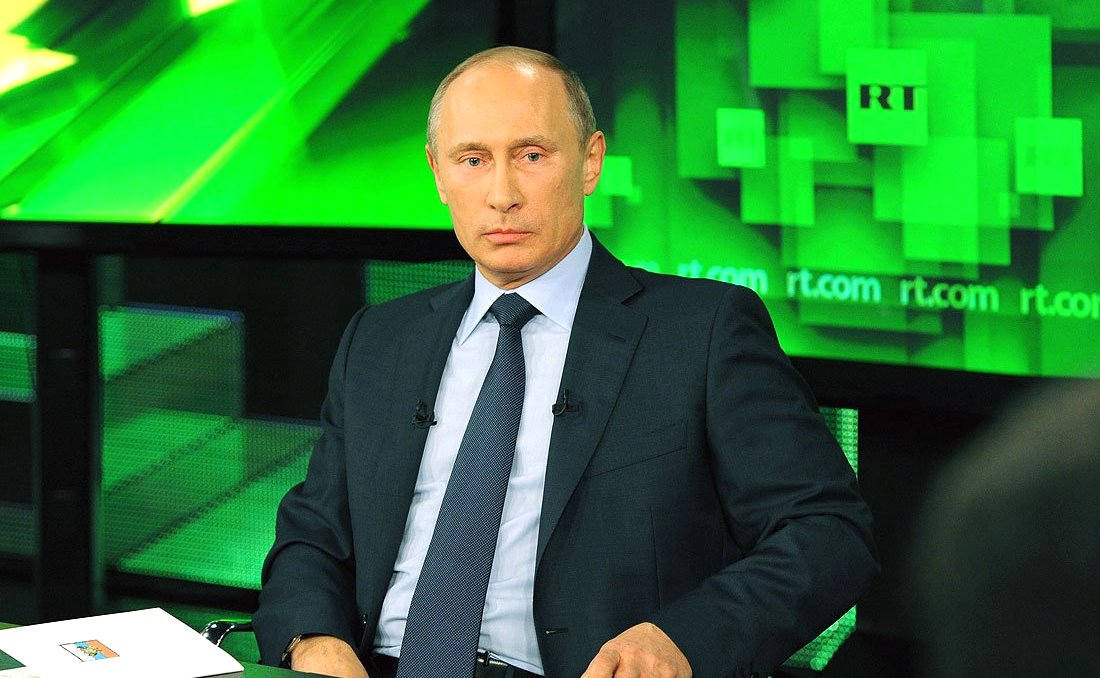Science & Tech
“Deepfake” Putin Declares Martial Law

Knowledge Nuggets:
- Russia claims that hackers used an AI-generated fake video of Vladimir Putin to declare martial law, which was aired on television and radio stations.
- The hackers allegedly had control of the broadcasting network for 37 minutes, disseminating a message indicating an attack from Ukraine and calling for an evacuation of border regions.
- Government and broadcasting officials swiftly dismissed the video as a forgery, assuring that the breach had been contained and the misinformation addressed.
The integration of artificial intelligence (AI) into everyday life has proved to be a double-edged sword, as highlighted by an unsettling event in Russia earlier this week.
Russian authorities have confirmed that hackers managed to air a fake video, purportedly showing President Vladimir Putin declaring martial law. This incident vividly demonstrates the potential for misuse of AI technology and raises alarm about the vulnerabilities within our information dissemination systems.
According to Russia’s official reports, the hackers seized control of a broadcasting network for a considerable span of 37 minutes, during which they broadcasted the doctored video. In this alleged message from Putin, he warned that Ukrainian forces, with backing from Washington, had breached Russia’s borders, leading him to declare martial law and order the evacuation of border areas.
The potential consequences of such a message are far-reaching. The geopolitical climate between Russia and Ukraine is already strained; a declaration of martial law could have easily sparked panic and escalated tensions. Thankfully, officials were quick to identify the broadcast as a forgery and reassured the public that it was a case of unauthorized access to the MIR television and radio services.
This incident not only underscores the advancements in AI, but also exposes a critical flaw in our reliance on digital communication. As the line between reality and artificiality blurs, the need for stringent cyber security measures and effective information verification systems has become more urgent than ever.
Clear Thoughts:
It’s a well-known fact that we live in an era of advanced technology, where AI has been employed in various fields to make life easier. However, the recent event in Russia, where hackers reportedly used AI to mimic President Putin and declare martial law, is a stark reminder of the dark side of this technology. It’s a sobering illustration of the serious threat cybercriminals pose to our security and peace.
This, folks, isn’t about Russia, Putin, or martial law; it’s about the reality that malicious actors can leverage AI to create damaging falsehoods. This deception could have easily escalated tensions between Russia and Ukraine, potentially igniting a crisis that could affect us all. It’s a chilling glimpse into the potential for chaos that cyber threats hold.
What are we doing, as a nation, to guard against such a threat? Cybersecurity, my friends, should be a top priority for our government. We need to arm ourselves against this new kind of warfare – a warfare fought not with bullets and bombs, but with information and misinformation. We should be investing heavily in securing our digital borders, as well as in educating our citizens about the dangers of misinformation.
We need to look at AI technology with discerning eyes. AI is a powerful tool, but like any tool, it can be used for good or for ill. This is a call to action for our scientists and lawmakers to enforce stringent regulations and ethical guidelines for AI use. The future of our nation – and, indeed, our world – depends on how we respond to this technological challenge.
